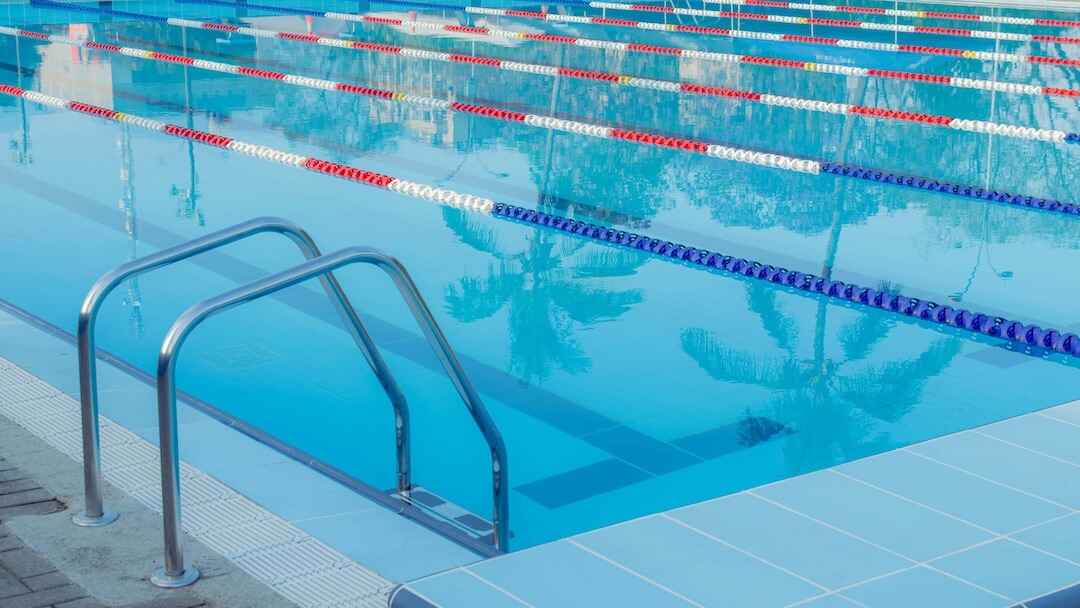How to Balance Pool pH Levels

How to Balance Pool pH Levels
Maintaining the correct pH level in your pool is one of the most important aspects of proper pool care. In Cooper City, where warm weather and frequent use can quickly alter water chemistry, knowing how to test and balance your pool’s pH is essential for keeping your water clean, clear, and safe. Proper pH levels not only enhance swimmer comfort but also protect your pool equipment and prevent costly repairs. If you're unsure about how to achieve the perfect pH balance, our pool specialists are here to help guide you through the process.
Understanding the Importance of pH in Pool Water
The pH level measures how acidic or alkaline your pool water is, with a scale from 0 to 14. A pH of 7 is considered neutral, while levels below 7 are acidic and above 7 are alkaline. The ideal pH range for a swimming pool in Cooper City is between 7.2 and 7.6. Maintaining this range is vital because water that’s too acidic can cause skin and eye irritation, damage pool equipment, and lead to corrosion of metal parts. Conversely, water that’s too alkaline can result in cloudy water, scale formation, and reduced effectiveness of sanitizers like chlorine.
In the hot climate of Cooper City, the pH level can fluctuate more quickly due to increased evaporation and swimmer activity. Regular testing and adjustments are necessary to keep your pool water chemistry in check. When your water’s pH is balanced, your sanitizer works more efficiently, and your pool remains inviting and safe for everyone.
How to Test Your Pool’s pH Levels
Testing your pool's pH is a straightforward process that can be done with over-the-counter test kits or electronic meters. To get an accurate reading, it’s best to test your pool water at least twice a week during peak usage or heat waves.
Start by collecting a water sample from about elbow-deep in the pool, away from skimmers or return jets to avoid skewed results. Use a reliable test kit, which typically involves adding drops of a reagent to a water sample and observing a color change. Match the color to the provided chart to determine your current pH level. Some digital meters offer quick and precise readings, making regular testing even easier for busy pool owners.
If your tests show that the pH is outside the optimal range, it’s time to make adjustments. Remember, it’s better to make small, gradual changes rather than large swings, which can be harder to correct and may cause additional problems.
How to Adjust Pool pH Levels
When your pool’s pH is too low (below 7.2), it means the water is too acidic. To raise it, you’ll need to add a pH increaser, commonly known as soda ash or sodium carbonate. Carefully measure the recommended amount based on your pool size and add it slowly to the deep end of the pool with the circulation system running. Allow the water to circulate for several hours, then re-test to check if the desired pH range has been achieved.
If your pool’s pH is too high (above 7.6), the water is too alkaline. To lower the pH, use a pH reducer, typically sodium bisulfate or muriatic acid. Follow the instructions carefully, add the chemical gradually, and ensure proper mixing by circulating the water. Re-test after several hours to confirm the adjustment.
It’s important to handle chemicals with care, wearing protective gear and working in well-ventilated areas. Precise measurement and patience are key to achieving and maintaining the ideal pH level. Regular testing and small incremental adjustments will help you avoid sudden swings that could affect water quality and swimmer comfort.
Common Challenges in Maintaining pH Balance in Cooper City
In Cooper City, several factors can influence your pool’s pH levels. High temperatures can cause increased evaporation, which removes water but leaves behind minerals that can alter pH. Heavy swimmer loads introduce organic matter, sweat, and urine, which can acidify the water if not properly balanced. Rainstorms and wind can also introduce debris and change water chemistry.
A frequent challenge is dealing with alkalinity, which acts as a buffer to pH changes. If alkalinity levels are too high, it becomes difficult to adjust pH accurately. Conversely, low alkalinity can cause frequent pH swings, making it harder to maintain a stable balance. Maintaining proper alkalinity levels—generally between 80 and 120 ppm—helps stabilize pH and reduces the need for constant adjustments.
Another common issue is using improper testing or chemical application methods. Inaccurate tests can lead to over- or under-correction, which affects water quality. Our pool experts in Cooper City emphasize the importance of using high-quality testing kits and following manufacturer instructions carefully.
Professional Pool Services and Maintenance in Cooper City
While regular testing and small adjustments can be managed by pool owners, professional pool services provide comprehensive maintenance to ensure your water chemistry stays optimal. Our specialists offer precise testing, expert chemical balancing, and ongoing monitoring to keep your pool in top condition.
Professional maintenance helps prevent common problems associated with pH imbalance, such as algae growth, cloudy water, and equipment damage. Our team is experienced in working with residential pools of all sizes, ensuring that your pool remains safe, inviting, and ready for use at all times.
In addition to chemical balancing, our experts can identify other issues like water circulation problems or equipment malfunctions that might affect water chemistry. Regular professional inspections and maintenance extend the lifespan of your pool and minimize costly repairs in the future.
If you notice persistent pH fluctuations despite your efforts, it’s time to consult with our pool specialists. We can perform detailed water analysis and develop a customized maintenance plan tailored specifically to the needs of pools in Cooper City’s unique climate.
Conclusion: Maintaining the Perfect pH in Your Cooper City Pool
Achieving and maintaining the ideal pH balance in your pool is a vital part of responsible pool ownership. Proper pH levels ensure your water remains clear, safe, and comfortable for swimmers while protecting your equipment from corrosion or scale buildup. Regular testing, cautious chemical adjustments, and understanding the factors that influence water chemistry are essential steps.
In Cooper City, the hot and humid climate makes consistent pH management even more important. Our pool specialists are here to assist you with expert advice, professional testing, and precise chemical balancing. Contact us today to keep your pool in pristine condition throughout the season and beyond. Your pool deserves the best care for maximum enjoyment and safety.



